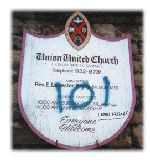
By Tracy N.
Thereís a slippery slope to censorship, as anyone who has ever lived under communist or fascist rule can attest.
Fortunately, Quebecers have only begun to taste censorship of ideas, words, and actions. Quebecers, mostly English speaking, have only begun to experience the fear of acting on oneís beliefs.
The problem with censorship is deciding when it ends. In 1977, Bill 101 was introduced to "protect" the French language, not to enact a series of communistic style laws that would effectively take away so many of the rights we once took for granted.
Bill 101, however, was only the beginning. The law blatantly took away the freedom of expression by forbidding the use of English on commercial signs. The government argued that it was for the good of the collective, the first in a series of communist-like laws.

Streets bearing the name of famous English war heroes have been replaced with famous French separatists, and cities have been forced to replace signs bearing words like "street" and "road" with "rue" and "chemin". No longer can you find a stop sign; they have been legally changed to a unilingual arret, undoubtedly at a great expense to the province.
Quebec businesses are forbidden from maintaining web sites in English only. If their website is not thoroughly translated or lacks french at all, they risk fines, which the OLF are hoping to raise shortly.
Endorsers of the law have hopped on the bandwagon as well. French speaking citizens sometimes threaten English speaking citizens that they must speak French, and others file anonymous complaints with the Language Police if they even hear or see one word of English in a business.
And it doesnít stop there.
A popular Francophone newspaper, LaPresse, has reportedly called for the banning of web sites criticizing the Office de la Langue Francaise (OLF) and the separatist movement, and some sites have already been removed from their ISPs. Any criticism from outside of the province is labeled "undemocratic interference".
Citizens rarely display their Canadian flag anymore in fear of property vandalism or personal injury (those who endorse Bill 101 are usually the same who want to separate from Canada). It is not uncommon for a flag displayed outside the home to be torn down and burned, or for a student wearing the maple leaf on his/her backpack to be denied access to public transportation.
Meanwhile, the Quebec government is vehemently spreading propaganda, fueling the French populations demand for censorship. They lie, mislead, and in short do anything to gain their support.
The government has banned fellow Canadians from traveling to Montreal to join in a protest rally unless they register their transportation costs with the official No Committee. They call this undemocratic, and interference in the will of the Quebec people. Forget that this referendum will affect other Canadians as well. Put simply, the Quebec government does everything it can to shut up those who disagree with their policies and goals.
Censorship is so commonplace that a 1996 April Fools joke sent hundreds of radio listeners into panic. The radio station responsible announced, as a prank, that the OLF has just announced that English language tombstones were now banned, and that all inscriptions had to be in French only. Sadly, what would normally have been recognized as a joke anywhere else was mistaken for reality. Listeners realized that this new "law" was really possible, and wasnít all that far fetched.
So the question is, where will this end? Will tombstones one day be required to be in French only? Will the government, as has been considered, ban the use of English on playgrounds and in hallways at school?
History shows us that censorship rarely stops where one claims it will. Now is our chance to stop it, before itís too late.